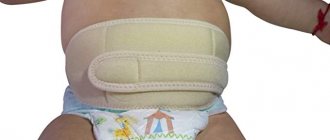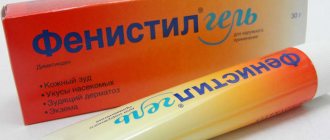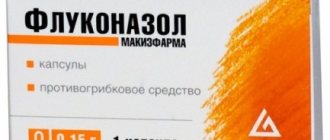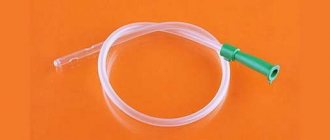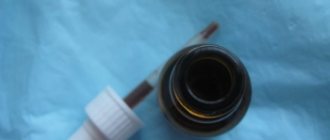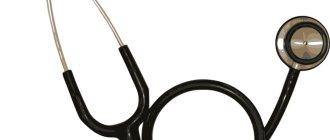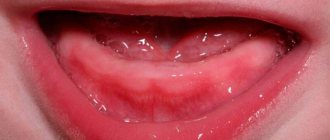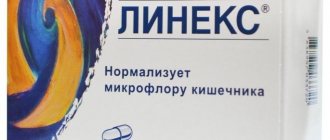Activated carbon is a cheap, accessible and safe enterosorbent. The drug is used to treat intoxication with alcohol, medications, food, etc. The drug penetrates the digestive tract, absorbs toxic substances and is excreted in its original form. The safe drug is approved for use in the treatment of patients of different age groups, including infants. The main thing is to follow the rules for using enterosorbent.
Activated carbon for newborns
Activated charcoal is an oral adsorbent that absorbs toxins that are ingested or released during digestion. According to doctors, the drug does not cause adverse reactions, so it is often used for infants. The medication is used for the treatment and prevention of various poisonings. It eliminates harmful substances from the body and strengthens the immune system.
There are 4 dosage forms of the drug - tablets, granules, powder, paste. The doctor will help you choose the most appropriate form of the drug for the patient, taking into account his age. Activated carbon is prescribed to infants in the form of a powder, from which a suspension is prepared. If you only have tablets on hand, they are ground into powder, mixed with water and given to the child up to 2 years old.
Enterosorbent treats diarrhea caused by infectious intestinal diseases, as well as poisoning. Coal has a porous shell that absorbs harmful substances and prevents them from being absorbed into the bloodstream. However, the drug will not help with intoxication with concentrated acids and alkalis.
Activated charcoal will help eliminate abdominal pain, bloating, and reduce colic in infants. But in case of dysbacteriosis, the adsorbent is not used, since it absorbs not only harmful, but also beneficial microorganisms from the intestines. For this reason, children are prescribed probiotics, for example, Bifidumbacterin.
There are modern drugs that have a similar mechanism of action: Polysorb, Smecta, Enterosgel. They do not disturb the natural bacterial flora of the intestines, cleanse the body of harmful substances and are excreted from the body in its original form. These medications coat the mucous membrane of the digestive tract, normalize digestion, and strengthen the immune system.
Activated carbon is recommended to be taken on an empty stomach, since the drug absorbs nutrients from the gastrointestinal tract, the child receives fewer vitamins (hypovitaminosis), and the body weakens. In addition, the adsorbent should not be taken in combination with other medications, as it reduces their effectiveness.
Contraindications
Coal is an affordable and safe sorbent, but just like other drugs, it has contraindications. Before taking it, you should carefully study the instructions.
If you have a stomach ulcer, charcoal is contraindicated
Coal contraindications include:
- problems in the functioning of the digestive system;
- the presence of an open gastric ulcer;
- You should not use the sorbent for certain types of gastritis;
- the presence of individual intolerance.
Despite the fact that there are not many contraindications, they still exist. For this reason, the drug must be taken with extreme caution. Long-term use of coal can cause severe weakening of the body, exhaustion, as well as active removal of useful and nutrients from it. Therefore, it must be taken correctly, in the indicated dosages and in accordance with the recommendations indicated in the instructions.
Indications for use
Activated carbon for newborns is prescribed in the following cases:
- For minor poisoning with fever, vomiting, abdominal pain.
- From prolonged jaundice.
- For colic.
- For stool disorders, excessive accumulation of gases in the intestines.
- For atopic dermatitis.
In addition, the drug is used for intestinal disorders in the baby due to poor nutrition of the mother. Before using the medication, you should consult your pediatrician.
Dosage for colic
Coal is often prescribed to newborns with intestinal colic. This drug allows you to quickly eliminate all unpleasant symptoms, gas formation and normalize the functioning of the digestive system.
Important! Before giving charcoal to an infant, you should consult your doctor. The sorbent has a number of contraindications and can sometimes cause side symptoms, but this rarely happens.
In order for charcoal to eliminate unpleasant symptoms and normalize the functioning of the digestive organs, it is necessary to choose the appropriate form and correctly calculate its dose.
Activated carbon for allergies
The drug is used for asthma, atopic dermatitis, allergic rhinitis, inflammation of the conjunctival membrane of the eye. The medication cleanses the body of toxins after allergic reactions. Enterosorbent is used after the treatment of allergies during the normalization of all processes in the body.
The most effective drug for food allergies that arise as a result of digestive disorders. The intestines cannot normally remove waste products from the body; they accumulate in the skin and appear as a rash.
A single dose of the drug for newborns is 0.05 g/1 kg, and no more than 0.2 g/1 kg should be taken per day.
Precautionary measures
- Ulcer of the stomach and duodenum.
- Bleeding of the digestive tract.
- Atonic form of colitis.
- Ulcerative-destructive changes in the colon mucosa.
- Erosion on the inner lining of the stomach or duodenum.
- Individual intolerance to the components of the drug.
Under the supervision of a doctor, patients take medication for hypovitaminosis and a decrease in calcium concentration in the blood.
Taking white charcoal will help avoid contraindications in newborns.
- bowel disorders (constipation, diarrhea);
- nausea, vomiting;
- stool turns black;
- embolism;
- pathological hemorrhages;
- decreased concentration of glucose or calcium in the blood;
- decrease in body temperature below 35°;
- hypotension.
Due to long-term use, the absorption of nutrients (fats, proteins, calcium, vitamins, hormones, etc.) is impaired. If side effects occur, you should stop giving the drug to your baby and consult your pediatrician.
Thus, Activated carbon is an effective and relatively safe drug that is sometimes prescribed to newborns over 1 year of age to treat poisoning. Before using the medication, you should consult your pediatrician. In addition, it should be remembered that there are more modern and safer enterosorbents.
Activated carbon is an inexpensive enterosorbent that causes virtually no side effects. Due to its harmlessness and availability, it can be used in all age groups, including newborns.
Description of the drug
Activated carbon is an enterosorbent that is absolutely harmless to the body, as it does not cause side effects . Therefore, it can also be used to treat newborns. Coal is used both as a therapeutic and as a prophylactic agent. It cleanses the body of toxins, thereby helping to strengthen the immune system.
Activated carbon is produced not only in the form of tablets, but also in the form of powder, granules and paste, which do not irritate the mucous membranes.
The drug has antidiarrheal, antitoxic and enterosorbing effects. Thanks to its porous shell, activated carbon has a broad absorbent effect and absorbs alkaloids, heavy metal salts, toxins, phenols and drug residues from the stomach, and then removes them from the body, preventing them from being absorbed into the blood. Activated carbon does not help with poisoning by alkalis and acids - cyanide, methanol and ethylene glycol.
Effect on digestive health
The qualities of this sorbent have been known for quite a long time; they are ensured thanks to a composition that contains elements of natural origin. It is based on coke with a wood, petroleum or coal structure. But the best medicine is considered to be one containing walnut shells and birch wood.
The beneficial effect of the medicine is ensured due to its constituent elements and porous structure. Thanks to its porous structure, the sorbent is able to instantly suck out poisonous and toxic elements from the body.
Charcoal cleanses the gastrointestinal tract well
To explain in more understandable terms, a charcoal tablet is a sponge that, upon penetration into the body, quickly binds harmful components and promotes their active elimination. But it is recommended to use the product only if there is slagging in the gastrointestinal tract. If there are no symptoms of slagging in the stomach and intestines, a cleansing procedure with charcoal is not required.
The main symptoms of slagging in the body include the following:
- the presence of regular exacerbations of diseases that occur in a chronic form;
- constant runny nose;
- poor or no appetite;
- stool disorder;
- manifestations of fatigue;
- apathy and lethargy;
- over time, the appearance of the skin deteriorates, hair and nail plates become brittle;
- Red rashes form on the surface of the skin.
If the body is polluted, then apathy and lethargy are often observed.
The table below contains all the properties that activated carbon has for the gastrointestinal tract.
| Properties | Action for the gastrointestinal tract |
| Sorbent | This property allows you to eliminate the negative consequences that stop metabolism - poisons, toxic components. The sorbent, just like a sponge, absorbs all harmful elements. |
| Detoxification | The elimination of toxic components is carried out by concentrating coal first in the stomach cavity, and then in the area of the small and large intestines. |
| Antidiarrheal | This property has a neutralizing effect on toxic components and gases. It also prevents irritation of the gastrointestinal mucosa. |
Indications for use of activated carbon
The drug is prescribed to infants for colic, which especially torments them, from infancy to six months; in addition, it is effective for prolonged jaundice, atopic dermatitis and dysbacteriosis. The latter is often found in young children, because due to the gastrointestinal tract not fully formed, they often experience flatulence, which is accompanied by painful sensations, as well as diarrhea, which is very dangerous for infants, as it is fraught with dehydration. Coal has been proven to be effective in treating bloating, as it absorbs gases and makes the baby feel much better.
Doctors often attribute activated charcoal to children who are poisoned by spoiled foods, alcohol, poisons, toxic and chemical compounds. However, self-medication in this case can be fraught with deterioration in well-being, so it is imperative to call a doctor. Along with the use of activated carbon, gastric lavage may be prescribed. In case of alkali poisoning, this drug is not effective; on the contrary, it can complicate the diagnosis and incorrectly prescribe treatment.
How to give activated carbon correctly
In order for the treatment to be correct and not harm the child in any way, you must carefully follow the dose and form of taking the drug. Since a baby can easily choke on an activated carbon tablet, it must be crushed into powder. The mass should be homogeneous, there should be no large granules, otherwise they will get into the throat and make breathing difficult.
Activated carbon powder needs to be mixed with water , you can add sugar to it, and when the drug is completely dissolved in it, you need to either give the baby something to drink from a small spoon or from a syringe. Afterwards, you need to give the baby something to drink again so that the sorbent gets into the stomach. It is not prohibited to add sorbent to juices and baby food.
The dosage of the drug is prescribed depending on the weight of the child. So, if the baby is 3 kg, a quarter of a tablet is enough for him, if from 3 to 5, a third of a tablet is enough. If the weight is from 5 to 7 kg, the baby is prescribed 12 tablets. At the age of one year, when the weight is 10 kg, the baby is supposed to be given one tablet. Activated carbon is given 3 times a day.
Activated carbon for children: instructions for use, dosage in tablets
For frequent loose stools and vomiting, adsorbents are used first. One of the popular natural remedies belonging to this group of drugs is activated carbon, which is approved for use by children.
It is extracted from carbon-containing materials through prolonged treatment at high temperatures.
How to drink it correctly, in what dose to give the sorbent, and in what cases to take it? Are there any contraindications to using coal?
What does it consist of and what is it produced in?
The main composition of the enterosorbent depends on the form of release and the manufacturer. In the classic version, in addition to coal, the preparation contains potato flour and sugar. Coal for children is produced in the form of:
- Black round smooth tablets, not coated, without marks or letters, 250 mg each.
- Gelatin capsules containing 200 mg of active ingredient.
- Fine powder, packaged in portioned sachets.
- A paste-like mixture, quite effective, but in a very rare form. Children are allowed to take it when they reach the age of six.
When is it prescribed?
Every responsible parent wonders whether it is possible to give a child such a remedy. Only a doctor can answer this. Before taking the drug, you should read the instructions to find out how to properly give activated charcoal to your child.
Activated carbon is recommended to be drunk not only for diarrhea in children. It is also prescribed for:
- Various intoxications (including medications).
- Kidney failure.
- Dysentery.
- Gastritis.
- Excessive production of mucus or hydrochloric acid.
- Bronchial asthma.
- Metabolic disorders.
- Hepatitis and other liver diseases.
- Cholecystitis.
- Food allergies.
It is also actively used for colic in newborns to normalize the process of gas formation. Many doctors often prescribe activated charcoal for infants and older children for allergic manifestations.
Black tablets are effective in cases of complex dysfunction of organs and systems due to burn disease, high concentrations of nitrogenous compounds, bilirubin in the bloodstream, which is often observed in liver pathologies.
For preventive purposes, it is recommended to use tablets before endoscopy, abdominal ultrasound, or x-ray (this allows you to reduce intestinal gas contamination and obtain the most accurate examination result).
A doctor may prescribe activated charcoal to a breastfed newborn baby for intestinal distress caused by the mother's poor diet. Also in the infant period, the medicine is used in the treatment of physiological jaundice.
Pharmacodynamics and pharmacokinetics
The preparation of the medicine takes place in special chambers where carbon-containing material is processed without oxygen. The porous structure of the tablets is achieved by the activation process. To do this, they are subjected to steam treatment.
When such a composition gets inside, under its influence the body begins to cleanse itself of various impurities. The activated surface prevents toxic compounds from being absorbed into the blood. That is why coal is considered a powerful prevention of overdose of drugs and toxic elements.
But this sorbent does not absorb alkalis, acidic compounds, and heavy metal salts well. It is also unable to cope with methyl alcohol poisoning and cannot effectively remove cyanide and glycol.
One more feature must be taken into account when using activated charcoal for repeated loose stools and vomiting in a child: it cannot cope with toxic elements that have managed to get into the bloodstream and soft tissues. Only those particles that are present in the gastrointestinal tract are subject to adsorption.
When deciding whether an adsorbent can be offered to an infant for painful intestinal colic, parents should know that the tablets, in addition to poisonous and poisonous elements, perfectly absorb various gases and do not affect the layers of the mucous membrane. After administration, it is released naturally in an unchanged state after 25 hours.
Important! The effect of the drug will be most effective if taken at the first symptoms of poisoning or intoxication.
At what age is it safe?
Children are prescribed only proven and safe medications. Therefore, parents must make sure that the child’s age category is suitable for using a particular medicine. At what age charcoal is given, you can check with your pediatrician or look in the annotation. It states that children are allowed to use activated carbon from birth.
Activated carbon is great for babies. It is distinguished by its availability, effectiveness, safety, and is in no way inferior to modern pharmaceutical analogues.
A specialist can prescribe it to both a newborn and an older child. But you should not assume that this is an exclusively safe drug for children and give it to the baby yourself. Prescription recommendations should be given by a pediatrician. You can use the product without medical prescriptions only during an attack of diarrhea in children, combining it with probiotics.
Mode of application
To prevent the drug from causing harm, it should be taken correctly, in the correct dosage. The tablets are taken following the instructions for use. They must be swallowed whole and washed down with water. If the sorbent is needed by a baby or a one-year-old child who finds it difficult to swallow whole tablets, you can crush them to a powder, mix with water and give the resulting mixture.
It is not advisable to combine medicine with food. You can give activated charcoal to young children and older patients 2 hours before meals, or 2 hours after meals. This way, all the vital components supplied with food can be easily absorbed by the body.
Newborns
To get rid of the disorder and improve the baby’s well-being, you need to know exactly how much activated charcoal should be offered to the newborn in tablet form. Dosage for newborns largely depends on weight. If it is:
- Less than 3 kg, it is recommended to take a quarter of a tablet.
- 3-5 kg – third part.
- 5-7 kg – half.
- 7-10 kg – a whole tablet.
The enterosorbent will get to the right place faster if you additionally give the baby water to drink. Children under one year of age should be given the drug 2-3 times a day from a teaspoon or from a two-cc syringe. The optimal duration of treatment to eliminate colic is 3-4 days.
Activated carbon for allergies, dermatitis, and physiological jaundice should be taken for a week.
For symptoms of dysbacteriosis, with increased gas formation, charcoal preparations are used extremely rarely. This is due to the fact that in addition to harmful bacteria, beneficial components are removed from the body, the lack of which leads to an imbalance of the intestinal flora.
Older children
If the dosage of natural sorbent for the adult category of patients is simple (1 piece per 10 kg), then calculating the dose for children is a little more difficult. The instructions for use will help you figure out how to take activated carbon for children. It states that it is suitable for treating different categories of patients.
It is just as difficult for children aged 3-4 years to take the whole tablet as for infants, so it is better to give them the drug in liquid form. A 5-year-old child should no longer have problems with swallowing - he can be offered a whole sorbent tablet. You need to calculate the intake taking into account the baby’s condition and age category.
In case of poisoning and intoxication, the daily rate of sorbent is:
- from one to three years, 2-4 pieces.
- from three to six – 4-6 pcs.
- from the age of six - 10-12 pieces, taking into account body weight.
Important point! Children should be given charcoal preparations at the rate of 0.05 g (50 mg) of the main ingredient per 1 kg of weight.
The permissible daily dose of activated carbon is calculated for children as follows: for example, the child’s weight is 16 kg. This means that he is entitled to 3.5 tablets: (16*50):250=3.2 pcs.
If the disorder is severe, the dose may be increased to 70 mg/1 kg. A child whose weight is 16 kg is supposed to take 4.5 tablets: (16*70):250=4.48.
To relieve signs of acute poisoning, children are given charcoal in tablets, always in combination with other medications.
When not to use
Most of the reviews about the drug are positive, but there is no need to give activated charcoal to children if:
- Hypersensitivity to the sorbent.
- Peptic ulcer in the acute period.
- Detected proctological pathologies.
- Internal bleeding.
- Diseases of the gastrointestinal tract that have become acute.
- Taking several antitoxic medications.
With the help of activated carbon, the body is cleansed, but during the treatment of various intestinal infections, liver pathologies, diseases affecting the stomach or intestines, one must remember that the simultaneous use of enterosorbent with medications (corticosteroids, vitamins, antibiotics) is unacceptable. The drug compatibility of the sorbent with any drugs is discussed with your doctor.
Overdose
If a child takes the sorbent in volumes significantly exceeding the permissible norms, the following may occur:
- Nausea.
- Vomiting.
- Weaknesses.
To alleviate the condition, symptomatic medications should be used.
An overdose of activated carbon also occurs in a chronic form if the child takes it daily for more than two weeks. This is fraught with loss of nutrients by the body, the occurrence of dysbiosis, and suppression of the immune system. If such a condition is detected, treatment with the sorbent is stopped and symptomatic therapy is used.
special instructions
The average duration of the therapeutic course can range from 3 to 15 days. If the alarming symptoms do not go away, the little patient’s condition worsens, you should seek medical help.
Drinking plenty of fluids will help prevent constipation. It is advisable to give your child not only clean water, but also herbal tea and compote. You cannot drink packaged juices, carbonated lemonades, or whole milk during this period.
Activated carbon rids the body of toxic elements, especially in diseases of allergic origin (usually food allergies). A disorder occurs due to impaired digestion.
Malfunction of the intestines leads to the accumulation of breakdown products of food particles, as a result of which they penetrate the skin structure and cause a rash.
In this case, the rules for taking enterosorbent have their own characteristics:
- The duration of the course of therapy is at least two weeks.
- The dosage is determined taking into account the patient's age group.
- Daily intake is carried out once a day, in the morning.
- After taking charcoal, food should be taken at least three hours later.
For other forms of allergies, the tablets are given three times a day, one at a time.
Your child may need to take several of these courses over the course of a year. In the future, it will not be superfluous to undergo cleansing of the body after completion of treatment to get rid of toxins.
Here the specialist determines the treatment regimen individually, based on the patient’s age category. Charcoal is taken two hours after the main meal for about 10 days.
At the same time, you need to drink more water throughout the treatment.
What side effects may the drug have?
Activated carbon is safe for children if the instructions for taking it are followed completely. There are cases when it is contraindicated - intestinal obstruction, internal bleeding in the stomach. Also, the drug should not be used for stomach and duodenal ulcers, but such diseases do not occur in childhood.
It is important not to extend the course of treatment with activated charcoal in infants for more than 7 days, since hypovitaminosis may develop, since charcoal absorbs not only toxins and poisons, but also beneficial substances.


